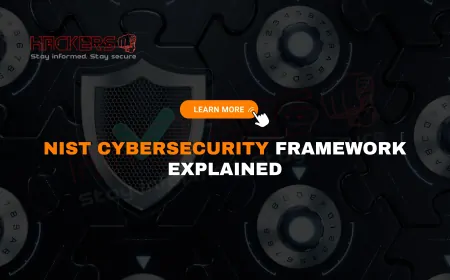How Students Can Start Bug Bounty Hunting While Still in College
Imagine sitting in your college dorm room, laptop open, scrolling through a website when you spot something odd. A small glitch that could let someone access private data. Instead of ignoring it, you report it to the company, and a few weeks later, a check arrives in your mailbox for a few hundred dollars. Sounds like a dream, right? This is the reality of bug bounty hunting, where ethical hackers find and fix security flaws in software for rewards. In 2025, with cyber threats on the rise, companies are more eager than ever to pay for help in securing their systems. As a college student, you have time, curiosity, and access to learning resources that make this an ideal side hustle. Not only can you earn money to help with tuition or expenses, but you also gain real-world skills that boost your resume. This blog guides you through starting bug bounty hunting while balancing studies. We will cover basics, skills, tools, and tips, all in simple terms for beginners. If you are tech-savvy or just starting, this could be your gateway to a rewarding career in cybersecurity.

Table of Contents
- What is Bug Bounty Hunting?
- Why Start Bug Bounty Hunting in College?
- Essential Skills to Learn
- Learning Resources for Beginners
- Tools You Will Need
- Choosing the Right Bug Bounty Platforms
- Step-by-Step Guide to Your First Hunt
- Tips for Success as a Student Hunter
- Common Mistakes to Avoid
- Inspiring Success Stories from Students
- Top Bug Bounty Platforms for Beginners
- Conclusion
- Frequently Asked Questions
What is Bug Bounty Hunting?
Bug bounty hunting is like being a digital detective. Companies invite ethical hackers to find bugs, which are errors or weaknesses in their software that could let bad actors cause harm. These bugs might allow someone to steal data, crash a site, or gain unauthorized access. In return for reporting them responsibly, hunters get paid bounties, which are rewards ranging from $50 to over $100,000 for serious issues.
The process is legal and structured. Programs run through platforms where companies outline what to test, rules, and payout scales. You sign up, read the scope, which is what parts of the system you can probe, and start looking for vulnerabilities. When you find one, you write a detailed report explaining how it works, its impact, and how to fix it. If valid, you get paid.
For students, this is exciting because it turns learning into earning. No need for a degree yet: many successful hunters are self-taught. In 2025, with remote work, you can hunt from anywhere. It teaches real skills like problem-solving and attention to detail, valuable in any tech job.
But it is not easy money. It requires patience, as your first bounty might take months. Start small, learn ethics, and always follow rules to avoid legal trouble. This field grew from tech giants like Google and Facebook offering bounties, now common across industries.
Why Start Bug Bounty Hunting in College?
College is a perfect time to dive into bug bounty hunting. You have flexible schedules between classes, allowing time for learning and hunting without a full-time job's pressure. Many students balance it with studies, using it as practical experience.
Financially, it helps. Bounties can cover books, food, or loans. Even small payouts add up, and top finds bring big rewards. In 2025, average bounties are higher due to increased threats.
Resume boost is huge. Employers love real-world experience. Listing bounties shows initiative and skills. It sets you apart from peers with just theory.
Networking opportunities arise. Platforms have communities where you connect with pros, leading to mentorship or jobs. It builds a portfolio of reports, proving expertise.
Personally, it is fulfilling. Fixing bugs makes the internet safer. For tech enthusiasts, it is like solving puzzles with rewards. Starting early builds skills before graduation, giving a head start in cybersecurity careers.
Challenges exist, like time management, but benefits outweigh them. Many regret not starting sooner. If curious about security, college is ideal to explore.
Essential Skills to Learn
To succeed in bug bounty hunting, build key skills. Start with web basics: understand HTML, CSS, JavaScript, how sites work. Know client-server communication.
Programming helps. Learn Python or JavaScript for scripting tests. Not expert level, but enough to automate or understand code.
Networking knowledge is crucial. Learn HTTP/HTTPS, how data travels, common protocols. This helps spot issues like insecure transmissions.
Security concepts: Study OWASP Top 10, common vulnerabilities like SQL injection, where attackers manipulate databases, or XSS, injecting malicious scripts.
Ethical hacking skills: Practice reconnaissance, gathering info; scanning for weaknesses; exploiting safely.
Report writing: Clear, detailed reports are key. Explain findings simply, with steps to reproduce.
Soft skills: Patience, as hunts take time. Critical thinking to connect dots. Ethics to report responsibly.
For students, start with free resources. Build gradually: master one skill before next. Practice on legal targets like labs. These skills not only help hunting but any tech role.
Learning Resources for Beginners
Plenty of resources exist for students. Free ones: TryHackMe and HackTheBox offer interactive labs for practice.
PortSwigger's Web Security Academy: Free Burp Suite tutorials on web vulnerabilities.
Books: "Real-World Bug Hunting" by Peter Yaworski explains common bugs with examples.
YouTube: Channels like NahamSec, LiveOverflow teach techniques, walkthroughs.
Courses: Google's Cybersecurity Certificate on Coursera introduces basics affordably.
Communities: Reddit's r/bugbounty for tips, questions. Discord groups for hunters.
Paid if budget allows: NahamSec's course or Rana Khalil's academy for structured learning.
Start with free, move to advanced. Dedicate time weekly. Join CTFs, challenges simulating hunts, to apply skills. Resources evolve, so check 2025 updates.
Tools You Will Need
Tools make hunting efficient. Burp Suite: Intercepts traffic, essential for web testing. Free community edition works for beginners.
ZAP (Zed Attack Proxy): Similar to Burp, open-source, good alternative.
Nmap: Scans networks for open ports, devices.
Metasploit: Framework for exploiting vulnerabilities, learning attacks.
Browser extensions: Like Cookie-Editor for manipulating cookies, or F12 dev tools built-in.
Virtual machines: Use VirtualBox with Kali Linux, pre-loaded with tools.
Note-taking: Obsidian or Notion for organizing findings.
Most are free. Learn one at a time. Practice in safe environments. As student, use college computers if allowed, or personal laptop. Tools empower but skill matters most.
Choosing the Right Bug Bounty Platforms
Platforms connect hunters with programs. For beginners, choose friendly ones.
HackerOne: Largest, many programs. Good triage, helps validate reports.
Bugcrowd: Curated targets, VDPs for practice without bounties.
Intigriti: European focus, clean interface, beginner programs.
YesWeHack: Growing, fair payouts, diverse targets.
Open Bug Bounty: Free submissions, good for starting.
HackenProof: Crypto focus, if interested in blockchain.
Synack: Invite-only, but worth aiming for later.
Look for programs with clear scopes, quick responses. Start with low-competition or new ones. Read rules carefully. Platforms have rankings, aim to climb as you gain experience.
Step-by-Step Guide to Your First Hunt
Ready to start? Follow these steps.
First, build knowledge: Complete beginner courses, labs.
Set up tools: Install Kali, Burp.
Choose platform: Sign up for HackerOne or Bugcrowd.
Select program: Pick one with broad scope, like web apps.
Recon: Gather info on target, like subdomains using tools.
Scan: Use automated tools for obvious issues.
Test manually: Look for logic flaws, injections.
Document: Note everything.
Report if found: Write clear, with proof.
Learn from feedback: Even duplicates teach.
Repeat: Hunt regularly, improve.
Balance with college: Set schedules, like weekends for hunting.
This guide gets you to first submission. Success comes with practice.
Tips for Success as a Student Hunter
Success requires strategy. Be persistent: First bounty may take time.
Focus learning: Master one vulnerability type, like XSS, before others.
Document well: Good reports get paid faster.
Stay ethical: Never exploit without permission.
Network: Join communities, ask questions.
Manage time: Hunt in free slots, avoid burnout.
Track progress: Keep journal of hunts, lessons.
Start small: Target less popular programs.
Update skills: Follow news on new threats.
Celebrate wins: Even small bounties motivate.
These tips help navigate as student.
Common Mistakes to Avoid
Avoid pitfalls. Do not rush reports: Verify bugs thoroughly.
Ignore scopes: Testing out-of-scope can ban you.
Poor communication: Vague reports get dismissed.
Overhype impact: Be honest about severity.
Neglect studies: Balance is key.
Skip basics: Jump to advanced without foundations fails.
Ignore feedback: Learn from rejections.
Go solo: Communities help.
Forget ethics: Always responsible disclosure.
Get discouraged: Failures are learning.
Avoiding these boosts chances.
Inspiring Success Stories from Students
Real stories motivate. One student shared on Medium how, as beginner, found first bug after 150 days, learning tons.
Virpalsinh from India started curious in college, became pro hunter.
Aj earned $100k in first year, sharing insights on persistence.
Another beginner found bug step-by-step, inspiring others.
Despite initial no rewards, many persist to success.
From small towns to big payouts, stories show anyone can start in college with effort.
Top Bug Bounty Platforms for Beginners
Here is a table of top platforms for starters in 2025.
| Platform | Best For | Min Payout | Features |
|---|---|---|---|
| HackerOne | Varied programs | $50 | Good triage, community |
| Bugcrowd | Curated targets | $100 | VDPs, levels |
| Intigriti | European companies | €50 | Clean UI, fair |
| YesWeHack | Diverse | €100 | Growing, support |
| Open Bug Bounty | Free submissions | Varies | No platform fees |
| HackenProof | Crypto | $50 | Web3 focus |
Conclusion
Starting bug bounty hunting in college is achievable and rewarding. From understanding basics to using tools and platforms, this blog covered steps to begin. With persistence, resources like TryHackMe, and ethical approach, you can earn, learn, and build a career. Balance with studies, avoid mistakes, and draw inspiration from stories. The digital world needs hunters: start today and contribute to safer internet.
Frequently Asked Questions
What is a bug bounty?
A reward for finding security flaws in software.
Do I need a degree?
No, skills and practice matter more.
How much can I earn?
From $50 to thousands per bug.
Is it legal?
Yes, if following program rules.
What skills first?
Web basics and common vulnerabilities.
Best free resource?
TryHackMe for labs.
Tools for beginners?
Burp Suite community edition.
Platform to start?
Bugcrowd for VDPs.
How to report bugs?
Detail steps, impact, fix.
Time per week?
10-20 hours, flexible.
Common first bug?
XSS or IDOR.
Handle rejection?
Learn from feedback.
Balance with college?
Schedule hunts around classes.
Certifications help?
Yes, like CEH.
Age requirement?
Usually 18, but check platforms.
Team up?
Yes, some allow collaborations.
Taxes on bounties?
Yes, report as income.
After college?
Leads to cybersecurity jobs.
Stay updated?
Follow blogs, Twitter.
Ethical concerns?
Always disclose responsibly.
What's Your Reaction?










































































